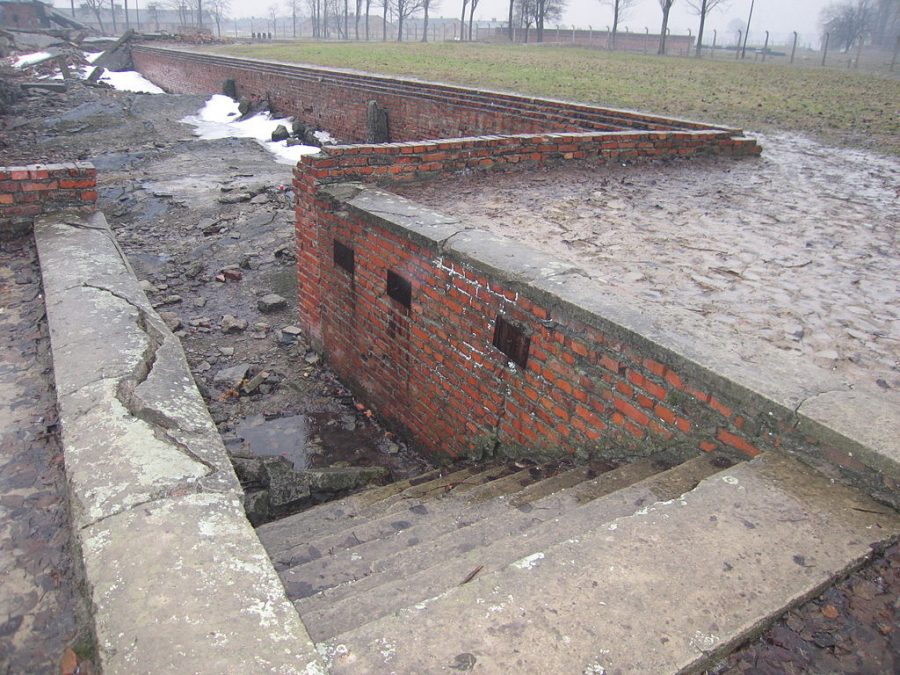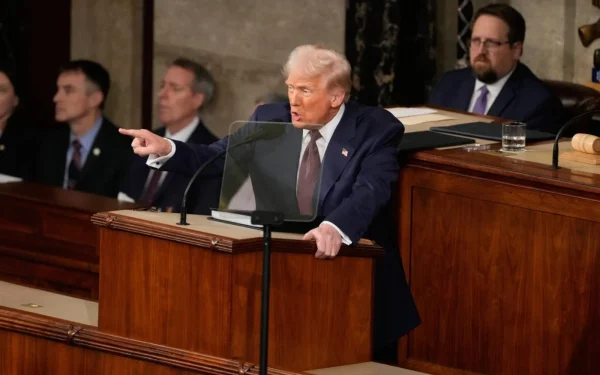Poland cannot erase the past with silence
Wikimedia Commons/Creative Commons license
The concentration camp at Auschwitz-Birkenau in Poland is a horrifying reminder of the Holocaust.
There is no denying that the Holocaust is history’s most notorious genocide, with six million Jews alone murdered by Adolf Hitler’s Nazi regime. Most of the world acknowledges those atrocities — and yet some have begun to deny their participation, not wanting such infamy to be associated with them.
Last month, Poland passed a law that would make it illegal for anyone to publicly blame the country for participating in the Holocaust. The draft of the bill states that “Whoever accuses, publicly and against the facts, the Polish nation, or the Polish state, of being responsible or complicit in the Nazi crimes committed by the Third German Reich … shall be subject to a fine or a penalty of imprisonment of up to three years.”
Auschwitz-Birkenau was the largest concentration camp run by Nazi Germany, and it was located in Poland, so whether or not the Polish nation was a willing participant is irrelevant. Accusing Poland of being associated with the crimes of the Holocaust is not “against the facts.”
The Polish government is trying to absolve itself from any association with the Holocaust by simply making it illegal to suggest any such association. Essentially, it is against the law to discuss history, which is the definition of censorship.
This could lead to future generations of people living in ignorance, and anyone who disagrees with and protests against this law would be seen as a threat needing to be silenced. This undermines the purpose of free and informed thought.
The law has already received its fair share of criticism and it has actually threatened Polish-Israeli relations. Officials from the two countries met Thursday to discuss the law and its impact.
“The blood of Polish Jews cries from the ground, and no law will silence it,” said Naftali Bennett, Israel’s education minister.
And yet surveys show that the facts already are being distorted in the minds of Polish people.

Poland’s law making it illegal to blame the country for the Holocaust in any way has damaged relations with Israel.
“Ignorance in Polish society about the Holocaust is extraordinary,” Polish scholar Jan T. Gross said. “There were surveys made and the majority of the people who were asked the question ‘Who suffered more during World War II under German occupation, Poles or Jews?’— the majority of the people said ‘Poles.’ How ignorant do you have to be?”
Poland’s right-wing government claims it is merely protecting the nation and its people from “slander,” but the people, as well as the scholars, are speaking out against the idea.
A group of Poles who helped to save Jews during World War II collectively wrote an open letter presented to the leaders of Poland and Israel.
“We ask you not to rewrite history,” the letter said.
One of the letter’s signees was Anna Stupnicka-Bando, 89, who smuggled goods in the Warsaw ghetto as a teenager.
“Everyone knows that there were those who were good and those who were bad,” Ms. Stupnicka-Bando said in a phone interview with The New York Times. “Those who were saving Jews, and those who were robbing and murdering them. There were heroes just as there were thieves and killers. Just like there were in every other nation. To say different is harmful and nonsensical.”
Understandably, it can be painful to believe that one’s ancestors could be capable of participating in something as cruel as attempted genocide, and people the world over can sympathize with the Polish people for not wanting to be associated with the Holocaust, especially when the atrocities were engineered by an occupying power.
But history is history, and attempts to silence dialogue cannot alter it and attempting to do so could be viewed as an insult to the memories of those who were murdered.
“What is it now with all this counting — this checking how many of us were good and how many were bad?” Ms. Stupnicka-Bando told The Times. “We are not some potatoes planted in a field that can be counted. We are people. Let it go.”
Words — or the lack of them — cannot change the past, no matter how painful that past may be.

Annie Higgins is a senior. When she was first in one of Mr. Smyth’s classes, Annie was the only sophomore in a class of seniors in his Literature to...







blogsweethome • Mar 10, 2018 at 4:09 pm
We all know that Poland resisted the Nazi invasion and that Poles and Polish Jews bore the brunt of the Holocaust. But the world is now finding out all about Polish complicty in the Holocaust, thanks to its government trying to ban discussion of it. The new law, which took effect this week, prompted widespread criticism from Israeli officials and Jewish groups in the United States — as well as Polish historians, Germany’s foreign minister and the State Department. In an effort to defuse tensions, Poland’s far-right, nationalist government has promised that the law will not be enforced in the coming weeks, until it can be reviewed by the nation’s constitutional court. But even if the law is never enforced, the debate over the text of the amendment has already profoundly damaged Poland’s past and present reputation. The clearest impact of the legislation has been to draw fresh attention to recent historical research which makes it plain that Poles rarely opposed and were frequently complicit in the persecution of their Jewish neighbors by the Nazis following the annexation of western Poland to Germany.